Tourism (UMA, UA, UCA, UCM,UEX,ULL, Nebrija, UOC, URJC, USC, US, UVIGO)
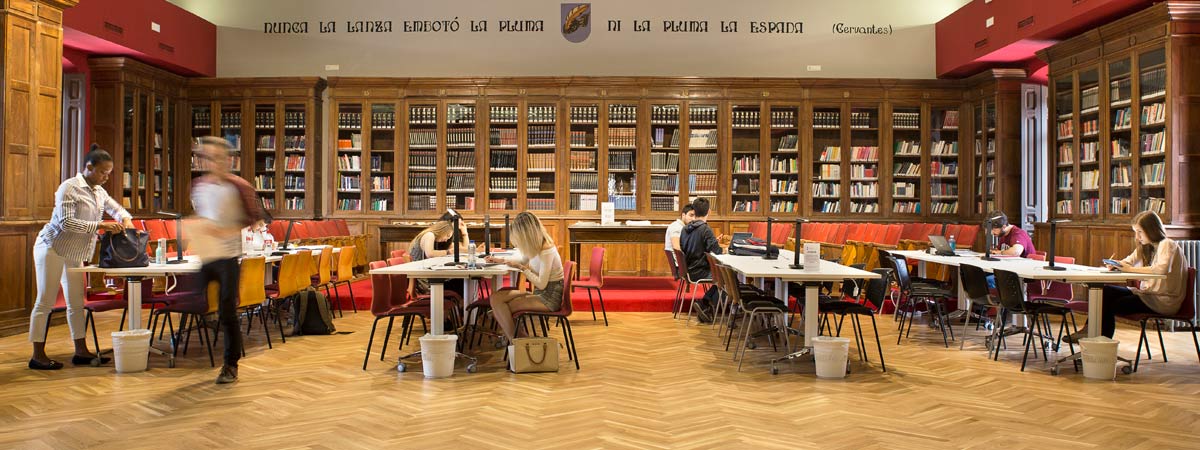
This program came about from the coordination and cooperation between research teams with experience in scientific-social knowledge of tourism.
With the aim of collaborating and promoting education and research in Tourism in Spain, which is consolidated as one of the most relevant sectors from an economic and social point of view, the Interuniversity Doctorate program in Tourism comes about from the coordination and cooperation between research teams with experience in the scientific-social knowledge of tourism and in accredited training programs, including doctoral programs currently existing in the 12 participating universities.
This cooperation framework is based on the Interuniversity Network of Postgraduate Studies in Tourism (REDINTUR), made up of 28 Universities with postgraduate studies in Tourism, which has been qualified in the National Tourism Plan 2012-2015 of the Ministry of Energy, Industry and Tourism, within the Talent and Entrepreneurship section as a strength, highlighting its operation and education programs in Tourism.
The intended approach is based on the analysis of the relationships between territories and resources, the complementarity of which would allow opening new perspectives and relationships between tourism agents located in a specific geographical area, whose cooperation could bring innovation processes, while managing to improve social, environmental and economic competitiveness. This system of interaction, relationships and flow of knowledge, in which the public and the private converge, makes innovation a key concept of this Program.
Information of the degree
Degree denomination: Doctorate Degree in Tourism
RUCT code:5601390
ISCED 1 code: Social and behavioral sciences
ISCED 2 code: Travel, tourism and leisure
Access to the Doctorate Programme
Organization
Professors
 Juan Arturo Rubio Arostegui
Coordinador del Programa de Doctorado en Turismo / Profesor
Coordinator of the Doctoral Program in Tourism / Professor
Licenciado en Filosofía y CC de la Educación. Máster en Gestión Cultural. Diplomado en Alta gestión Universitaria. Su actividad profesional se ha desarrollado exclusivamente en el ámbito de la cultura, tanto en la Gestión Cultural como en la Administración Pública Local. En el año 2003 se doctora cum laude y es premiado por el Ministerio de Administraciones Públicas por su tesis doctoral. Durante un periodo significativo (2003-2011) compatibilizó esta dedicación profesional con la docencia como profesor asociado en la Universidad (URJC y Nebrija). Es a partir de 2011 cuando se integra como profesor a tiempo completo en la Universidad Nebrija. Los temas de investigación van desde el análisis de las políticas culturales e instituciones artísticas, la sociología de las artes, hasta las culturas evaluativas en el campo académico y artístico. Cabe reseñar el valor de su investigación en la transferencia de conocimiento de estas líneas de investigación en las asociaciones profesionales de las artes y de la gestión cultural. Asimismo, es destacable su labor de transferencia para instituciones públicas y privadas tales como la Red Nacional de Teatros y Auditorios, la Federación Española de Municipios y Provincias, Ministerio de Cultura y fundaciones y Think Tanks tales como la Fundación. Es destacable también su dedicación a la Gestión Universitaria: desde 2011 hasta 2015 implementa el Sistema Interno de Garantía de Calidad en la Facultad de Artes y Letras y dirige el Departamento de Arte (Nebrija). A partir de 2015 es nombrado Adjunto al Vicerrector de Investigación para gestionar los programas de doctorado y gestionar la creación de la Escuela de Doctorado, que dirige desde su creación en 2017. Es Investigador Principal del grupo de Investigación Nebrija en Comunidades artísticas y académicas. En la actualidad es miembro del Consejo de Comunicación y Cultura de la Fundación Alternativas y Vocal del Comité de Sociología de las Artes y la Cultura de la Federación Española de Sociología. Ha participado en numerosos proyectos de investigación nacionales y europeos. En la actualidad es Investigador Principal de los siguientes Proyectos de Investigación en concurrencia competitiva: a) “Cambio político, nueva política cultural urbana y transformación social: ¿Hacia un paradigma de ciudad post-creativa?” Ref. RTI2018-096299-B-I00) financiado por el Programa Estatal "Retos Investigación" concedido en 2019. b) Espacios, Géneros y Públicos de la Música en Madrid (Ss. Xvii-Xx) Convocatoria de la Comunidad de Madrid concedido en 2019. C) Study on the impact of artist’s mobility in European cities: The creart Project (proyecto financiado dentro del programa Europa Creativa)
Juan Arturo Rubio Arostegui
Coordinador del Programa de Doctorado en Turismo / Profesor
Coordinator of the Doctoral Program in Tourism / Professor
Licenciado en Filosofía y CC de la Educación. Máster en Gestión Cultural. Diplomado en Alta gestión Universitaria. Su actividad profesional se ha desarrollado exclusivamente en el ámbito de la cultura, tanto en la Gestión Cultural como en la Administración Pública Local. En el año 2003 se doctora cum laude y es premiado por el Ministerio de Administraciones Públicas por su tesis doctoral. Durante un periodo significativo (2003-2011) compatibilizó esta dedicación profesional con la docencia como profesor asociado en la Universidad (URJC y Nebrija). Es a partir de 2011 cuando se integra como profesor a tiempo completo en la Universidad Nebrija. Los temas de investigación van desde el análisis de las políticas culturales e instituciones artísticas, la sociología de las artes, hasta las culturas evaluativas en el campo académico y artístico. Cabe reseñar el valor de su investigación en la transferencia de conocimiento de estas líneas de investigación en las asociaciones profesionales de las artes y de la gestión cultural. Asimismo, es destacable su labor de transferencia para instituciones públicas y privadas tales como la Red Nacional de Teatros y Auditorios, la Federación Española de Municipios y Provincias, Ministerio de Cultura y fundaciones y Think Tanks tales como la Fundación. Es destacable también su dedicación a la Gestión Universitaria: desde 2011 hasta 2015 implementa el Sistema Interno de Garantía de Calidad en la Facultad de Artes y Letras y dirige el Departamento de Arte (Nebrija). A partir de 2015 es nombrado Adjunto al Vicerrector de Investigación para gestionar los programas de doctorado y gestionar la creación de la Escuela de Doctorado, que dirige desde su creación en 2017. Es Investigador Principal del grupo de Investigación Nebrija en Comunidades artísticas y académicas. En la actualidad es miembro del Consejo de Comunicación y Cultura de la Fundación Alternativas y Vocal del Comité de Sociología de las Artes y la Cultura de la Federación Española de Sociología. Ha participado en numerosos proyectos de investigación nacionales y europeos. En la actualidad es Investigador Principal de los siguientes Proyectos de Investigación en concurrencia competitiva: a) “Cambio político, nueva política cultural urbana y transformación social: ¿Hacia un paradigma de ciudad post-creativa?” Ref. RTI2018-096299-B-I00) financiado por el Programa Estatal "Retos Investigación" concedido en 2019. b) Espacios, Géneros y Públicos de la Música en Madrid (Ss. Xvii-Xx) Convocatoria de la Comunidad de Madrid concedido en 2019. C) Study on the impact of artist’s mobility in European cities: The creart Project (proyecto financiado dentro del programa Europa Creativa)
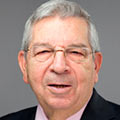 Manuel Figuerola Palomo
Director del Centro de Investigación de Desarrollo e Investigación Turística (CIDET), Universidad Nebrija / Profesor
Director of the Center for Development Research and Tourism Research (CIDET), Nebrija University / Professor
Doctor en Ciencias Económicas por la Universidad Complutense de Madrid y Medalla de plata al mérito turístico concedida por el Gobierno Español. Viene desarrollando su carrera docente desde el año 1969 en diferentes Escuelas y Universidades, ocupando también cargos de gran importancia en la Secretaría de Turismo de España y llevando a cabo numerosos proyectos de investigación. Posee más de 80 publicaciones. En la actualidad es el Director del Departamento de Turismo de la Universidad Antonio de Nebrija.
Manuel Figuerola Palomo
Director del Centro de Investigación de Desarrollo e Investigación Turística (CIDET), Universidad Nebrija / Profesor
Director of the Center for Development Research and Tourism Research (CIDET), Nebrija University / Professor
Doctor en Ciencias Económicas por la Universidad Complutense de Madrid y Medalla de plata al mérito turístico concedida por el Gobierno Español. Viene desarrollando su carrera docente desde el año 1969 en diferentes Escuelas y Universidades, ocupando también cargos de gran importancia en la Secretaría de Turismo de España y llevando a cabo numerosos proyectos de investigación. Posee más de 80 publicaciones. En la actualidad es el Director del Departamento de Turismo de la Universidad Antonio de Nebrija.
 Gracia Abad Quintanal
Coordinadora de Investigación de la Facultad de Ciencias Sociales y del Programa de Doctorado en Seguridad y Análisis de Riesgos y Conflictos) / Profesora
Research Coordinator of the Faculty of Social Sciences and of the Doctoral Program in Security and Risk and Conflict Analysis) / Professor
Doctora en Ciencias Políticas por la Universidad Complutense de Madrid. Diploma de Estudios Avanzados en Relaciones
Internacionales. Licenciada en Ciencias Políticas, especialidad en Relaciones
Internacionales. Acreditada por ACAP. Investigadora postdoctoral en el Dpto. de Políticas y
Relaciones Internacionales de Royal Holloway, Universidad de Londres (noviembre 2007-
noviembre 2009). Profesora de cursos de grado, posgrado y especialización en diversas
universidades españolas: Universidad Complutense de Madrid, Saint Louis University
Madrid, Universidad de Salamanca y Universidad CEU San Pablo, entre ellas. Entre sus
líneas de investigación cabe destacar las organizaciones internacionales, los procesos de
integración y el multilateralismo, la seguridad internacional y las relaciones internacionales
de Asia Oriental. Autora y coautora de numerosas publicaciones sobre sus áreas de
interés.
Gracia Abad Quintanal
Coordinadora de Investigación de la Facultad de Ciencias Sociales y del Programa de Doctorado en Seguridad y Análisis de Riesgos y Conflictos) / Profesora
Research Coordinator of the Faculty of Social Sciences and of the Doctoral Program in Security and Risk and Conflict Analysis) / Professor
Doctora en Ciencias Políticas por la Universidad Complutense de Madrid. Diploma de Estudios Avanzados en Relaciones
Internacionales. Licenciada en Ciencias Políticas, especialidad en Relaciones
Internacionales. Acreditada por ACAP. Investigadora postdoctoral en el Dpto. de Políticas y
Relaciones Internacionales de Royal Holloway, Universidad de Londres (noviembre 2007-
noviembre 2009). Profesora de cursos de grado, posgrado y especialización en diversas
universidades españolas: Universidad Complutense de Madrid, Saint Louis University
Madrid, Universidad de Salamanca y Universidad CEU San Pablo, entre ellas. Entre sus
líneas de investigación cabe destacar las organizaciones internacionales, los procesos de
integración y el multilateralismo, la seguridad internacional y las relaciones internacionales
de Asia Oriental. Autora y coautora de numerosas publicaciones sobre sus áreas de
interés.
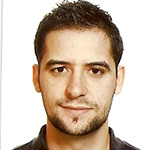 Juan José Fernández Muñoz
Colaborador externo
External colaborator
Juan José Fernández Muñoz es Profesor Titular del Área de Metodología de las Ciencias del comportamiento de la Universidad Rey Jun Carlos desde 2019, y colabora en el programa de Doctorado Interuniversitario en Turismo por la Universidad Nebrija.
Juan José Fernández Muñoz
Colaborador externo
External colaborator
Juan José Fernández Muñoz es Profesor Titular del Área de Metodología de las Ciencias del comportamiento de la Universidad Rey Jun Carlos desde 2019, y colabora en el programa de Doctorado Interuniversitario en Turismo por la Universidad Nebrija. Esta colaboración se ve reflejada en la capacidad de dirigir y participar en tribunales de tesis doctorales, cumpliendo con la normativa establecida al efecto en su universidad de origen.
Ha sido profesor invitado en Satakunta University of Applied Sciences (Finlandia) y en la Escola Superior de Tecnologia da Saude de Coimbra (Portugal). Entre sus líneas de investigación se encuentran los Modelos de Ecuaciones estructurales aplicados a las Ciencias de la Salud, adaptación y validación de propiedades psicométricas de instrumentos de medición en Psicología y aplicación de modelos de regresión, moderación y mediación.
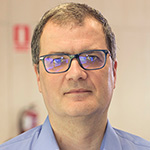 Javier Martínez Moguerza
Colaborador externo
External colaborator
Javier Martínez Moguerza es Catedrático en la Universidad Rey Juan Carlos desde 2017, y colabora en el programa de Doctorado Interuniversitario en Turismo por la Universidad Nebrija.
Javier Martínez Moguerza
Colaborador externo
External colaborator
Javier Martínez Moguerza es Catedrático en la Universidad Rey Juan Carlos desde 2017, y colabora en el programa de Doctorado Interuniversitario en Turismo por la Universidad Nebrija. Esta colaboración se ve reflejada en la capacidad de dirigir y participar en tribunales de tesis doctorales, cumpliendo con la normativa establecida al efecto en su universidad de origen.
Previamente ha ejercido como Profesor Ayudante y Profesor Asociado en la Universidad Carlos III de Madrid y Profesor Colaborador en la Universidad Pontificia Comillas de Madrid (ICAI-ICADE). Sus intereses de investigación se centran en la Investigación Operativa (Calidad Seis Sigma, Optimización de Recursos), así como en el diseño de métodos de Aprendizaje Automático y la Ciencia de Datos. Ha sido académico de la Global Young Academy desde diciembre de 2010 hasta mayo de 2016, y actualmente pertenece a los Alumni de dicha institución. Además, es académico fundador de la Academia Joven de España, creada mediante Real Decreto 80/2019, de 22 de febrero (BOE del 26 de marzo).
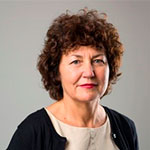 Miren Aurkene Alzua Sorzabal
Directora Cátedra Telefónica-Nebrija en Inteligencia Turística, Universidad Nebrija / Profesora
Director of the Telefónica-Nebrija Chair in Tourism Intelligence, Nebrija University / Professor
Miren Aurkene Alzua Sorzabal
Directora Cátedra Telefónica-Nebrija en Inteligencia Turística, Universidad Nebrija / Profesora
Director of the Telefónica-Nebrija Chair in Tourism Intelligence, Nebrija University / Professor
Employability
Career Opportunities
According to the data analyzed, in the current doctoral program, employability has been high, reaching 80%. All the positions obtained have been related to teaching and/or research, specifically university professors and research technicians.
Agreements
Activities in Tourism
Visit all the Activities of the School of Economics and Business
Interuniversity Doctorate Program in Tourism

